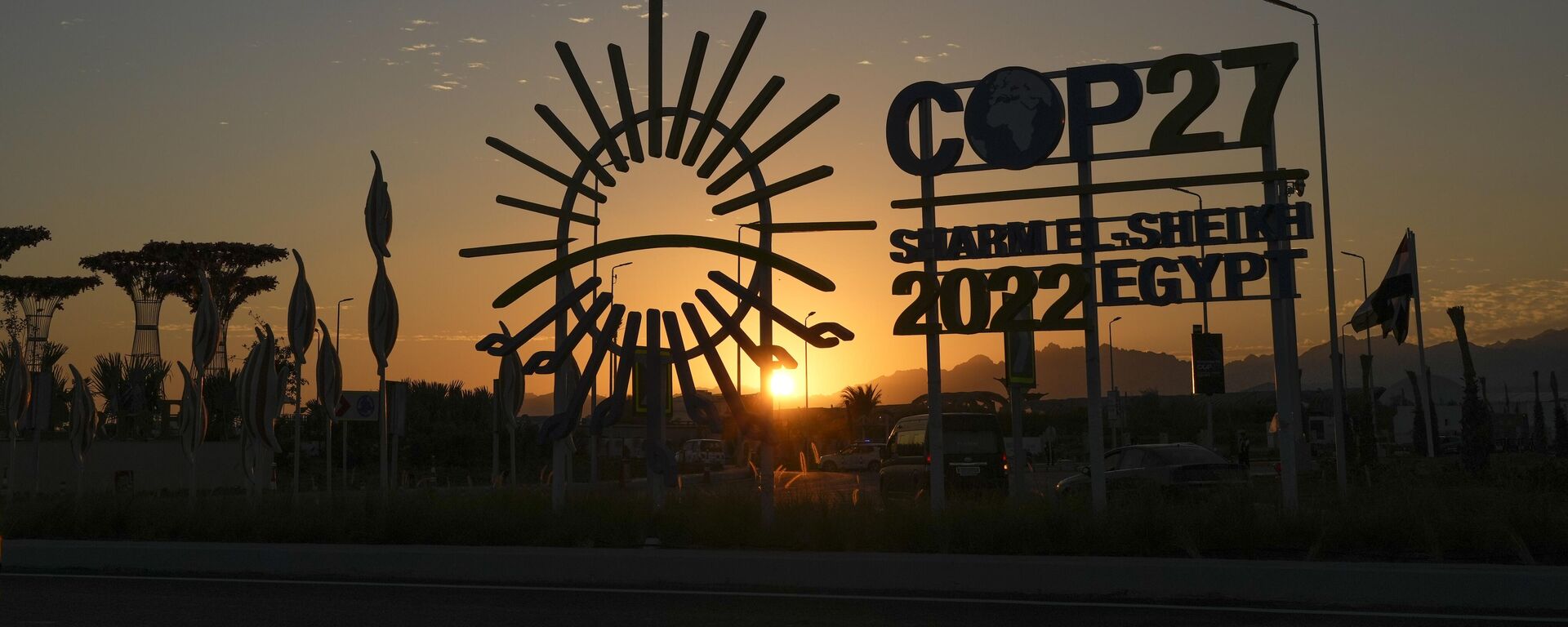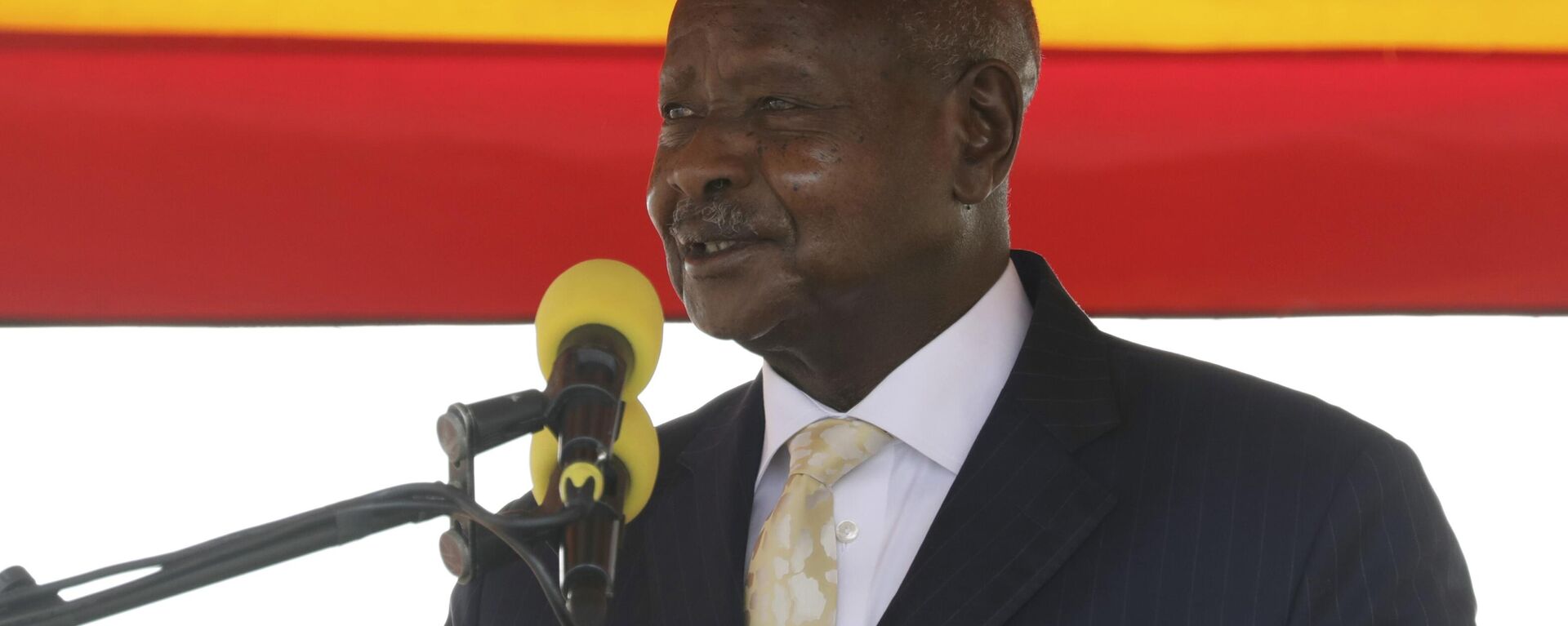https://sputnikglobe.com/20221115/g7-countries-announce-global-shield-climate-insurance-scheme-concerns-raised-about-fairness-1104225548.html
G7 Countries Announce ‘Global Shield’ Climate Insurance Scheme, Concerns Raised About Fairness
G7 Countries Announce ‘Global Shield’ Climate Insurance Scheme, Concerns Raised About Fairness
Sputnik International
In this article you will read about ‘Global Shield’ climate insurance scheme, announced by G7
2022-11-15T14:33+0000
2022-11-15T14:33+0000
2022-11-23T11:38+0000
africa
south africa
climate change
cop27 in egypt
climate summit
compensation
developing countries
funding
west
https://cdn1.img.sputnikglobe.com/img/07e6/0b/0f/1104229984_0:161:3071:1888_1920x0_80_0_0_198f13cf9713359011450c4192ed4e9a.jpg
The group of G7 countries announced a climate insurance scheme called "Global Shield" on Monday at the COP27 climate conference. The scheme is largely dedicated to covering the “loss and damage” of the countries most affected by the climate crisis.Global Shield is being developed in cooperation with the V20 group, which includes 58 states considered particularly vulnerable to climate change. The initiative aims to provide quick access to funds in cases of floods, droughts or other natural disasters associated with global warming.In the framework of the initiative, Germany alone contributed $175 million through insurance and social security schemes, while Denmark, Ireland, Canada and France are estimated to have contributed a total of $42 million between them.Some African leaders, for their part, applauded the scheme, stating that climate finance from the richest countries is a long-waited and welcome move.Earlier, at the same conference, South Africa’s Environment Minister Barbara Creecy denounced that, “Developing countries are spending between 3 and 12% of their GDP already” in dealing with “impacts of climate change."However, some experts were outraged by the scheme's terms, pointing out that it will be the residents of those vulnerable countries who have to pay for the consequences of the climate phenomenon in the form of insurance installments.The practice of insuring vulnerable countries and individuals against adverse climate events is not new. One example was the parametric insurance applied by African Risk Capacity in Malawi. Parametric insurance implies paying compensation for damage from a catastrophe only when predetermined parameters are met. In 2015, the Malawian government paid the insurance company $4.7 million to provide drought insurance for a year. However, when insufficient rainfall led to a devastating drought and an estimated $350 million in damage, African Risk Capacity stated that the threshold for people affected by drought had not been met, and refused the payout.Observers likewise underlined that individuals in need of climate insurance are generally too poor to be able to afford it.As for the sufficiency of the funds allocated by the G7, one study has estimated that the annual economic cost of developing countries' climate-generated loss and damage will be around $400 billion a year, while another pointed to up to $580 billion annually by 2030. At the same time, the figure is expected to range between $1 and $1.8 trillion by 2050.Notably, European countries have repeatedly made climate finance pledges and failed to deliver. In particular, the West made a decision in 2009 to mobilize $100 billion annually by 2020 and transfer the funds to developing countries hit worst by the climate crisis. While the climate project is still unfulfilled, one senior UN official claimed in October that he had no idea where the billions of dollars allocated to it had gone.As for issuing climate loans, South Africa approved an $8.5 billion energy transition investment plan this October to assist the African country’s switch from coal to clean energy. The plan was backed by the developed world. The majority of the money, however, will arrive in the form of loans, posing questions about the plan’s fairness and South Africa's debt burden. The grant-based part of the amount constituted less than 3%.
https://sputnikglobe.com/20221114/south-africa-environment-minister-urges-west-to-provide-immediate-climate-change-help-1104117290.html
https://sputnikglobe.com/20221114/ugandas-president-denounces-europe-for-double-standards-in-regard-to-climate-change-1104089096.html
africa
south africa
west
Sputnik International
feedback@sputniknews.com
+74956456601
MIA „Rossiya Segodnya“
2022
News
en_EN
Sputnik International
feedback@sputniknews.com
+74956456601
MIA „Rossiya Segodnya“
Sputnik International
feedback@sputniknews.com
+74956456601
MIA „Rossiya Segodnya“
global shield, climate insurance scheme, climate adaptation, loss and damage, funding climate crisis
global shield, climate insurance scheme, climate adaptation, loss and damage, funding climate crisis
G7 Countries Announce ‘Global Shield’ Climate Insurance Scheme, Concerns Raised About Fairness
14:33 GMT 15.11.2022 (Updated: 11:38 GMT 23.11.2022) While developing countries suffer from the impact of climate change, wealthy nations offer them loans and insurance programs, fueling discontent that the most affected and least to blame are footing the bill for the climate crisis.
The group of G7 countries announced a climate insurance scheme called "Global Shield" on Monday at the COP27 climate conference. The scheme is largely dedicated to covering the “loss and damage” of the countries most affected by the climate crisis.
Global Shield is being developed in cooperation with the V20 group, which includes 58 states considered particularly vulnerable to climate change. The initiative aims to provide quick access to funds in cases of floods, droughts or other natural disasters associated with global warming.
In the framework of the initiative, Germany alone
contributed $175 million through insurance and social security schemes, while Denmark, Ireland, Canada and France are estimated to have contributed a total of $42 million between them.
Some African leaders, for their part, applauded the scheme, stating that climate finance from the richest countries is a long-waited and welcome move.
“The Global Shield is long overdue. It has never been a question of who pays for loss and damage, because we in the V20 are already paying for it,” Ghana's finance minister, Ken Ofori-Atta, said at a press conference held as part of COP27.
Earlier, at the same conference, South Africa’s Environment Minister Barbara Creecy denounced that, “Developing countries are spending between 3 and 12% of their GDP already” in dealing with “impacts of climate change."

14 November 2022, 15:57 GMT
However, some experts were outraged by the scheme's terms, pointing out that it will be the residents of those vulnerable countries who have to pay for the consequences of the climate phenomenon in the form of insurance installments.
“Using insurance is a method in which the victim pays, just in installments in the beginning,” special envoy on climate finance and Barbados Prime Minister Mia Mottley said while advocating for grant-based funding instead.
The practice of insuring vulnerable countries and individuals against adverse climate events is not new.
One example was the parametric insurance applied by African Risk Capacity in Malawi. Parametric insurance
implies paying compensation for damage from a catastrophe only when predetermined parameters are met. In 2015, the Malawian government paid the insurance company $4.7 million to provide drought insurance for a year. However, when insufficient rainfall led to a devastating drought and an estimated $350 million in damage, African Risk Capacity stated that the threshold for people affected by drought had not been met, and refused the payout.
Observers likewise underlined that individuals in need of climate insurance are generally too poor to be able to afford it.
“There’s an inherent injustice about them [insurance companies] profiting off of our loss and damage,” Michai Robertson, a negotiator for the Alliance of Small Island States, pointed out.
As for the sufficiency of the funds allocated by the G7, one study has estimated that the annual economic cost of developing countries' climate-generated loss and damage will be around $400 billion a year, while another pointed to up to $580 billion annually by 2030. At the same time, the figure is expected to range between $1 and $1.8 trillion by 2050.

14 November 2022, 14:48 GMT
Notably, European countries have repeatedly made climate finance pledges and failed to deliver. In particular, the West made a decision in 2009 to
mobilize $100 billion annually by 2020 and transfer the funds to developing countries hit worst by the climate crisis. While the climate project is still unfulfilled, one senior UN official claimed in October that he had no idea where the billions of dollars allocated to it had gone.
As for issuing climate loans, South Africa approved an $8.5 billion energy transition investment plan this October to
assist the African country’s switch from coal to clean energy. The plan was backed by the developed world. The majority of the money, however, will arrive in the form of loans, posing questions about the plan’s fairness and South Africa's debt burden. The grant-based part of the amount constituted less than 3%.




